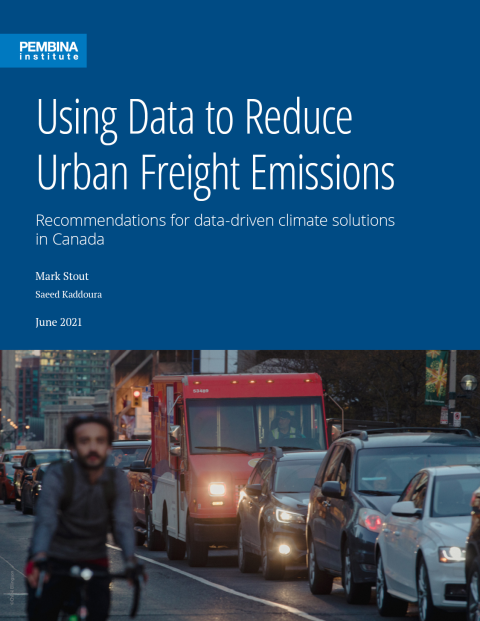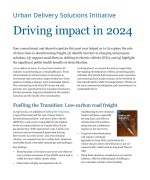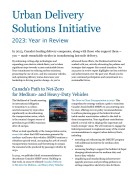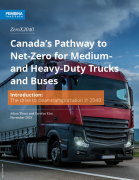In this era of big data and analytics, we have the ability to collect more information than ever before. In cities, telecommunication and technology companies harness data on the movement of people and goods in an effort to understand the evolving mobility demands and needs of both city residents and freight. These efforts are only just beginning, and the freight sector has yet to see their full benefits.
Through our work and engagement with policy practitioners and planners, better data collection on urban freight has been identified as an urgent need, especially when considering the rise in freight emissions — Canada’s 2021 National Inventory Report shows that since 1990, freight transport emissions have increased by 154% — as well as recent changes to e-commerce activity in Canada. Not only has demand sharply increased but the way deliveries move through our cities has also changed — going directly to our doorsteps.
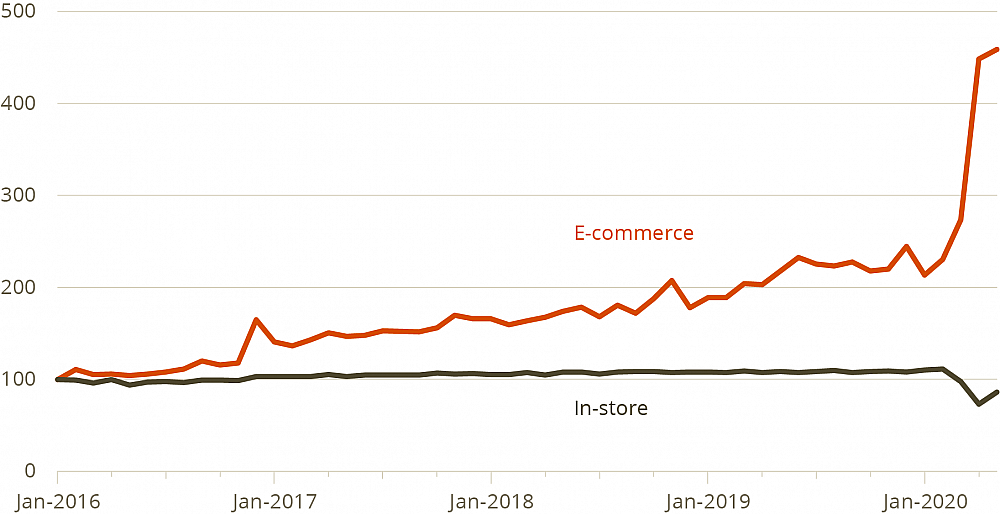
The big picture around increased emissions and freight activity is clear. But what do we know about the volume of purchases, the number of individual doorstep deliveries, the vehicle kilometres travelled by trucks to deliver parcels and packages, the most common truck routes used, impacts of trucks on different neighbourhoods, or the carbon emissions produced by these trips?
While several organizations and regions do collect information on freight, there is limited publicly available data in terms of estimating truck trip demand and routing to help municipal and regional policy-makers and planners respond and adapt to changing urban delivery patterns. There is room in Canada to advance a more co-ordinated urban freight data collection effort.
For this report, the Pembina Institute set out to better understand what drives urban freight trips — especially in the business-to-consumer (B2C) segment — and what information and data is currently being collected or should be collected to inform future planning and policy-making efforts.
This research has made it clear that there are multiple ways Canada can improve its collection and use of data toward stronger and more efficient urban freight systems. We recommend the federal government take several actions.
Recommendations
- Strengthen data governance framework and co-ordination. Establish an overarching national data governance framework and co-ordinate actors in the freight ecosystem, such as private business and industry, academic institutions and civil society organizations, to facilitate data sharing.
- Establish new national data collection initiatives. Canada should look to adopt best practices from other countries on national data collection. National carrier companies could play a leading role in aggregating information on urban freight trip generation, similar to the data collected by the U.S. Postal Service, in order to understand broad trends.
- Explore new legislation, including mandating data-sharing. Data-sharing models used elsewhere can serve as an example as to how legislation could support data collection of urban freight activity. In the Netherlands, for instance, newly adopted legislation requires transport companies of a certain size to submit their precise truck routing data to the national statistics agency.
- Establish data partnerships with logistics operators. The federal government should consider further research or projects on urban freight data sourced directly from logistics operators or help establish partnerships between those operators and other levels of government.
- Leverage real-time data from telecom operators. Data from telecommunication operators, or telematics, is another area that warrants further investigation as a detailed source of urban freight data.
- Enhance municipal/regional household travel surveys. Expanding these surveys to include questions on e-commerce and home delivery frequency can be a cost- effective approach to better understand urban freight trends and how to plan for it accordingly.

